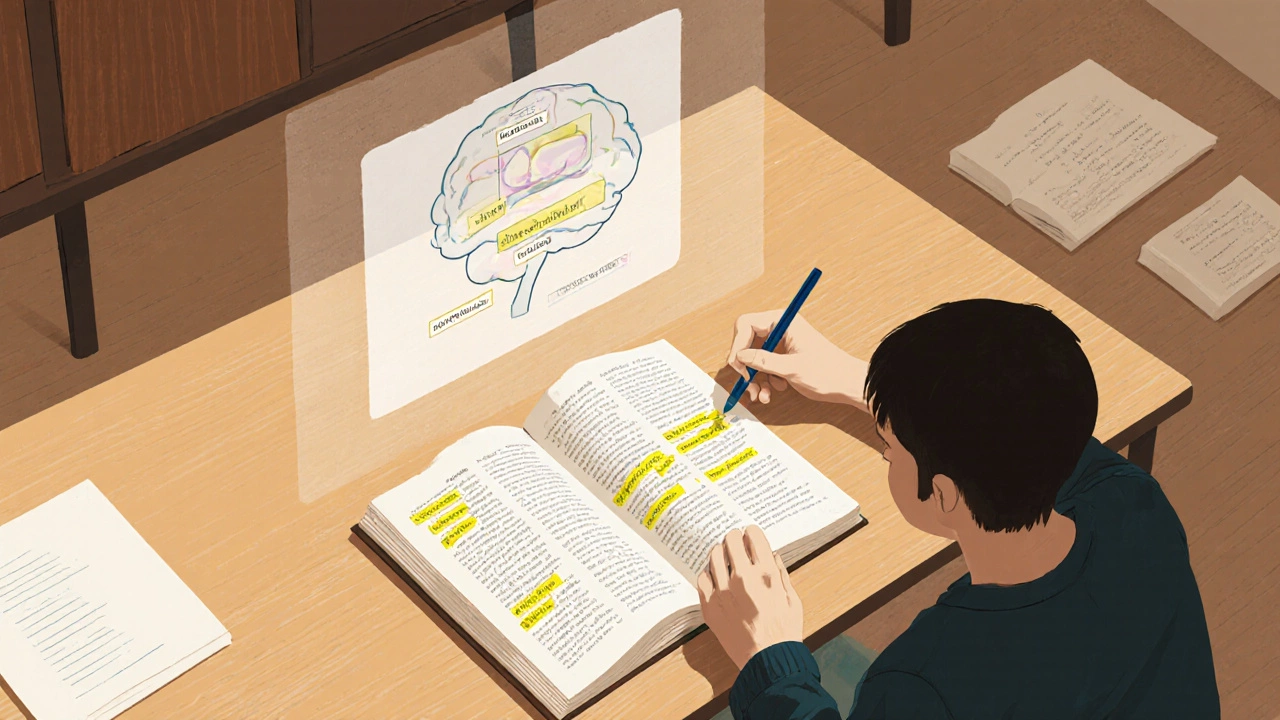Fast 5‑Minute Memory Hacks: How to Memorize Anything Quickly
Learn a proven 5‑minute framework to memorize anything fast using chunking, vivid images, mnemonics and rapid recall-perfect for students, professionals, and lifelong learners.
Read moreEver walked into a room and forgotten why you went there? You’re not alone. The good news is that memory isn’t magic – it’s a skill you can train. Below are practical memory techniques you can try right now, whether you’re cramming for a test or just trying to remember grocery lists.
Our brain likes patterns. When you break a long string of numbers or words into smaller groups, it’s easier to store and retrieve. Think of phone numbers – they’re split into three parts for a reason. Try grouping study points into 3‑5 item chunks. For example, instead of memorizing ten separate facts about the French Revolution, bundle them into three themes: causes, key events, and outcomes.
Our minds remember pictures better than plain text. When you need to learn a list, picture each item in a vivid scene. Suppose you need to remember the parts of a cell: imagine a tiny factory where the nucleus is the boss’s office, mitochondria are power plants, and the ribosomes are busy assembly lines. The stranger the image, the stronger the memory.
Another favorite trick is the “memory palace.” Pick a familiar place – your bedroom, a favorite coffee shop – and mentally place each fact in a specific spot. Walking through that space later cues the information.
Acronyms are shortcuts for long lists. The classic “PEMDAS” stands for Parentheses, Exponents, Multiplication, Division, Addition, Subtraction. Create your own for any subject. Need to recall the order of the planets? Use “My Very Educated Mother Just Served Up Nachos” (Mercury, Venus, Earth, Mars, Jupiter, Saturn, Uranus, Neptune). The rhythm helps lock it in.
Last‑minute cramming feels urgent but often leaves the brain with a fleeting memory. Instead, spread study sessions over days or weeks. Review the material after 1 hour, then after a day, then after a few days. This “spaced repetition” forces the brain to rebuild the memory each time, making it sturdier.
There are free apps that can help you schedule these intervals, but you can also use a simple notebook with dates.
Explaining a concept to someone else is a powerful test of understanding. When you teach, you have to reorganize the info in your head, which strengthens the neural pathways. Grab a study buddy, a family member, or even record yourself talking through the material.
Try the “Feynman Technique”: write the concept in plain language, identify gaps, then revisit the source material to fill them. The process turns passive reading into active learning.
When a new fact pops into your mind, repeat it aloud three times within five seconds. The quick verbal reinforcement gives the brain a moment to encode the detail before distraction sets in.
For example, after reading that “photosynthesis converts light into energy,” say it out loud, then pause, then repeat. It feels a bit odd, but the habit builds stronger recall.
These techniques work best when you mix and match them. Try chunking with a memory palace, or pair spaced repetition with teaching. The key is to keep the process active and enjoyable – the more you engage, the more the brain remembers.
Ready to give them a go? Pick one technique today, apply it to something small, and notice the difference. Soon you’ll have a toolbox of memory tricks that make learning faster and everyday forgetfulness a thing of the past.

Learn a proven 5‑minute framework to memorize anything fast using chunking, vivid images, mnemonics and rapid recall-perfect for students, professionals, and lifelong learners.
Read more
Learn the three R's of memorization-Read, Recite, Review-and how to apply them with practical tips, timelines, and common pitfalls for lasting recall.
Read more
Mastering the art of memorization can significantly enhance your exam preparation. This article explores effective strategies to boost memory retention, ensuring you can learn quickly and recall information when needed. By understanding how to leverage your brain's natural capabilities, you can transform your study sessions into productive learning experiences. Dive into proven tactics like mnemonic devices and active recall, and discover ways to implement them in your daily routine. Empower your learning with these practical tips.
Read more